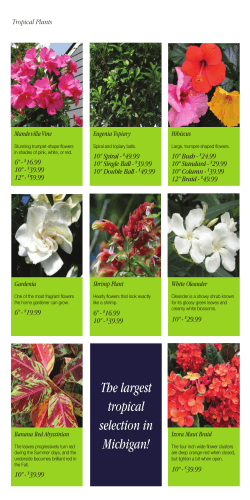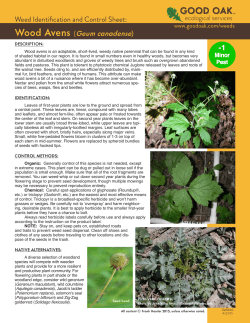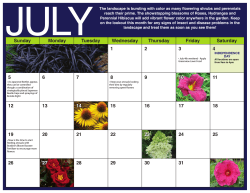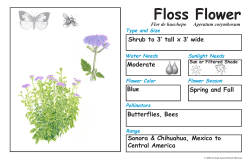
here! - Mason Street Farm
BROCCOLI Natalino – chartreuse-coloured, pointed buds spiral around 10-13cm (4-5″) heads. Natalino broccoli seeds broccoli is best planted to mature in September to October. Cut promptly while it is still pale-green. Makes a wonderful addition to a vegetable dip tray. Open-pollinated seeds. Matures in 90 days. Calabrese – Dark green plants grow 45-75cm (1830″) tall with a tightly beaded bluish green central head between 8-20cm (3-8″) across. This is followed by abundant side shoots that keep coming until frost. This HEIRLOOM broccoli variety arrived in North America with Italian immigrants in the late 1880s. It is probably centuries old. Everest – Everest broccoli seeds produce the highest quality broccoli for harvesting late summer to fall. The 15cm (6″) wide, blue green heads are highly dome-shaped, with small, tightly packed beads. Everest broccoli freezes well for winter meals. Matures in 50 days. Santee – For late fall/winter harvest sprouting broccoli. Beautiful purple florets and green stems are sweet and tender, and can be eaten fresh or cooked. Turns green when cooked. Harvest when the florets are mini-sized. Plants produce over a long harvest period of 3-5 weeks. Good for bunching. Suitable for fall crops in all areas, and fall and winter crops in mild areas. CAULIFLOWER Amazing Cauliflower - Amazing cauliflower seeds live up to its name with its amazing holding ability in the garden. Medium-sized plants with domed, solid curds and self-blanching, upright wrapper leaves when well fed. Tolerant to both heat and cold stress. Matures in 75 days. CABBAGE Savoy Chieftan Cabbage - Heritage Vegetable. Globe shaped heads are thick and flat with a short core and an average weight of 2.7 kgs (6 lbs). Stunning crinkled or "savoyed" dark green leaves are a departure from the norm and help to make this variety a visual treat in the garden and a culinary triumph in the home. Withstands fall frosts better than other varieties and is reputed to be the best tasting of all types of cabbages. Super Red Cabbage - Summer harvest. These beautiful, deep-red, round heads in big wrapper leaves resist splitting in the fall. The flavour of Super Red 80 is fairly mild. Famosa - Mid-season, organic savoy. Famosa has deep blue-green heads weighing in at 2-4 lb. The yellow tinted interior is filled with great, tender leaves with a very good flavor. Best in cooked dishes. Intermediate resistance to downy mildew. China Express - These sweet, crisp napa cabbages are ideal for salads and a mainstay of the stir-fry. Big, broad, barrel-shaped, and pale-green heads are tightly packed and 0.6-2.2kg (11/2-5lb) after trimming. BRUSSELS SPROUTS Roodnerf Brussels Sprouts - produces cold hardy, productive plants, Roodnerf was bred in England for reliable and uniform cold hardiness, so they’re a safe bet for coastal gardens. The medium-tall plants yield generous stalks of plump green sprouts that are tightly packed and delicious. Roodnerf will provide for fall and winter harvests of tasty sprouts. Matures in 100 days. Red Ball Brussels Sprouts - red foliage and sprouts, and the colour really improves in cold weather and after frost. Yields on this 1m (36″) tall variety are a bit lower, but the dark red sprouts are sweeter, and thought to be more nutritious. Matures in 120 days. SUNFLOWERS Autumn Beauty – Branching, yellow, brown, burgundy blooms, 5' high plants Velvet Queen – Branching, rich dark red, 5' high Chocolate – branching, dark, rich brown flowers, 45' high plants Giganteus – 12 ' tall, single giant yellow blossom at head, edible seeds Yellow Dwarf Spray – edible flower buds!!! taste like artichoke!!! branching, bushy growth, yellow flowers to 2', great for hedging BEANS Carminate – Beautiful, slender purple pods. Much nicer than older, purple pole bean varieties. Harvest pods at 8-9". Excellent, rich, and slightly sweet flavor. Suitable for fresh use in salads or cooked. Beans turn green when cooked. Fortex – Early, dependable pole bean with an extended harvest period. Growing to over 11", Fortex produces extra long, round pods. Dark green, firm-textured pods are completely stringless and delicious at all lengths, even after the seeds enlarge. Carson – High yielding and flavorful. Carson's fancy, slim, 5 1/2" pods grow on vigorous and productive plants. A great looking yellow bean with good disease resistance. Gita - A more widely adapted day-neutral variety of a subtropical Asian specialty. Graceful, 16-20" long, dark green pods, no bigger than the diameter of a pencil. Stringless, sweet, and richly flavored for steaming and stir-fry. Use a tall trellis. Scarlet Runner - A hummingbird favorite. Scarlet flowers against green, heart-shaped foliage. Rapid climbers. Beans are edible and delicious when young. Keep pods picked for continuous bloom. The flowers are also edible, offering a mild and sweet flavor. Use them to garnish or in salads, soups, and desserts. Velour – First purple filet bean. "Extra-fine" grade beans are short, 4-5" long, with straight, slender, bright purple pods. Turns green upon cooking. Medium-sized upright plants yield well. Concador - Smooth, straight, 4 1/2-5" pods on medium-sized upright plants. Excellent uniformity. CUCUMBERS Northern pickling - A high-yielding, early variety for salads and pickling. Medium green fruits bear early, and set heavily on short, space-saving vines. Fertilize well and pick frequently at a small size to maintain good color and fruit shape. Marketmore - Popular nonhybrid. Long, slender, dark green cucumbers. The slender, refined "Marketmore look" has long been the standard for slicing cucumbers in the North. Begins bearing late, but picks for a relatively long time. Intermediate resistance to cucumber mosaic virus, downy mildew, and powdery mildew. Lemon - Small, rounded, pale yellow cucumbers, 1½-2½" diameter. This versatile cucumber is sweet and flavorful, and doesn't have much of the chemical that makes other cucumbers bitter and hard to digest. Though it's often served raw, it's also a good pickling cucumber. Striped Armenian - Unique appearance and excellent flavor. Also known as Painted Serpent. Unusual, slightly fuzzy, "S"-shaped fruits are slightly ridged with alternating dark and light green stripes. Harvest from 8-18". Delicious and different. Tasty Jade - Early, slender Japanese cucumbers. Vigorous, high-yielding plants produce glossy, thinskinned, 11-12" long fruit with crisp, fresh flavor. Suitable for outdoor or greenhouse culture. Trellis for straight fruit. Diva - Especially flavorful when harvested small. Diva produces distinctly tender, crisp, sweet, bitterfree, and seedless cukes. Foliage is nonbitter, hence not as attractive to cucumber beetles as some varieties. Harvest at 5-7". SUMMER SQUASH Yellow Crookneck - Choice eating quality. The best yellow variety for buttery flavor and firm texture. Big plants are late to begin bearing, but then yield consistently over a long picking period. Best picked small, 4-5" long. Sunbeam - Bright yellow zucchini with attractive white stripes. The easy-to-harvest plants with few spines produce high yields of attractive fruit. Y-Star Pattypan - Yellow organic patty pan. Prolific yielder of shiny yellow scalloped squashes, with light green on the blossom end. Amount of green may vary depending on the level of heat and plant stress. Widely adaptable. Open plant for easy harvest. G-Star Pattypan – Dark green, shiny, organic patty pan. Compared to Starship, G-Star's fruits are darker green and more ribbed. The smaller this prolific yielder is picked, the shinier it will be. Open plants. Flying Saucer - Multi-colored patty pan. They are more highly ribbed than other patty pans for a unique look. Fruits are dense, nutty, and flavorful. High nighttime temperatures can result in fruits with less yellow. Romanesco - Traditional Italian heirloom with the best flavor. This distinctive zucchini is medium gray-green, with pale green flecks and prominent ribs. Big, large-leafed training vines with only about half the yield of hybrids, but much better flavor; clearly better textured, nutty, and delicious, raw or cooked. Also a good producer of heavy male blossom buds for cooking. Blossoms bear a mild, squash-like flavor and are great stuffed and fried, or sliced for used in soups, omelets, salads, and pasta dishes. Black Beauty - The standard summer squash, introduced in the 1920s. Large bush plants grow semi-upright and open, and are loaded with glossy dark green fruits with firm creamy white flesh and fine flavour. Plants are productive very early, and over a long period. Best eaten when under 20cm (8″ long), the best variety for freezing. Black Beauty zucchini is a 20th Century HEIRLOOM that won the All American Selections prize back in 1957. WINTER SQUASH Red Kuri - Flashy, scarlet fruits. Teardrop-shaped, "baby red Hubbard"-style fruits weigh about 4-7 lb. and have smooth-textured flesh. Red Kuri is good for pies and purées because specks of skin (being red) will not show. Also known as Orange Hokkaido. Rouge Vif d'Etampes - The bright scarlet French pumpkin known as Rouge vif d'Etampes in France. "Rouge vif" means "vivid red". This is an attractive variety, actually a squash, for fall display. Shaped flat, looking like a red cheese wheel, the fruits average in the 10-15 lb. range. The moderately sweet, orange flesh is suited for pumpkin or squash pie. Avg. yield: 2 fruits/plant. Burgess Buttercup - The standard buttercup squash. Dark green, blocky shape with a gray "button" on the blossom end. Medium-small fruits weigh in at 3-5 lb. Deep orange, fiberless flesh has a rich, sweet flavor. Avg. yield of 3-4 fruits/plant. Tuffy Acorn - A unique, delicious acorn squash for baking. Tuffy has thicker, much sweeter, drier yellow flesh than others. Black-green skin, distinctive heavy ribbing. Avg. 2 lb. NOTES: (1) Rind is tough. Use care when cutting in half for baking. (2) For best sweetness wait two weeks or more after harvest. Avg. yield: 5-6 fruits/plant. Blue Hubbard - Big hard-shelled squash. The big fruits are tapered at the ends and have a bumpy, blue-green, hard shell. Averages in the 12-15 lb. range with some larger . Medium-dry, mediumsweet, yellow flesh. A fall tradition at New England roadside stands. Avg. yield; 1 or sometimes 2 fruits/plant. Waltham Butternut - The standard butternut. Light tan-colored winter squash with small seed cavities and thick, cylindrical necks without crooks. Uniform fruits avg. 9" long, avg. 4-5 lb. The flesh is smooth-textured and has a unique sweet flavor, particularly after 2 months' storage. This 1970 AllAmerica Selections winner from Massachusetts is still deservedly the most widely grown full-size butternut. Avg. yield: 4-5 fruits/plant. Cha Cha Kabocha - Best-eating midsize kabocha. Dark green, slightly flat-round, medium-sized, avg. 4-5 lb. fruits. Bright orange flesh cooks up dry, flaky, sweet, and delicious. Long storage potential. Avg. yield: 3-4 fruits/plant. Carnival Dumpling - Multicolor Delicata, with colorful patches and flecks of dark green, light green, orange, and yellow. Semi-bush plants produce fruits averaging 1-1 1/2 lb. Hot weather promotes more green tones and less yellow/orange. Avg. yield: 5-7 fruits/plant. Honey Boat Delicata - high quality delicata type winter squash. Fruits are elongated with even lines over a buff-coloured skin. The flavour is rich and reminiscent of sweet potatoes, and few squash store as well as this one. Fruits average 8cm (3″) thick, and up to 20cm (8″) long on productive, tidy bush plants. Sweet Dumpling Delicata - Sweet, single-serving size. Small, 4" diameter, teacup-shaped fruits average 3/4-1 lb. It has the ivory color and dark green stripes of Delicata, but in a round, flattopped shape and dainty, single-serving size. Very sweet, tender orange flesh. Suitable for stuffing. Medium length vines. Avg. yield: 8-10 fruits/plant. KALE Scarlet -Multi-purpose, open-pollinated kale. The broad, frilly, purple leaves grow on 2-3' tall, upright stalks. Scarlet compares to Redbor in height, leaf shape, and color. Good uniformity for an openpollinated variety. Great for baby leaf and bunching, and can also be used as a bedding ornamental. Red Russian - Smooth red leaves for baby leaf and bunching. Stems are purple; leaves are flat, toothed, and dark green with purple veins. The plants mature medium-tall and leaves are tender compared to other kales. For salads and light cooking. NOTE: To extend storage life, dunk leaves in cold water post harvest. Toscano - Italian heirloom. Lacinato or "dinosaur" type. Unique leaf type: extra-dark green, noncurled but heavily blistered (savoyed). Rich, tender leaves have a softer texture than curly green kales. Tolerant of hot and cold weather. PEAS Sugar Ann Snap - Extra early, incredibly sweet snap peas on short, 60cm (2′) vines that don’t require trellising. Sugar Ann snap pea seeds are an excellent choice for smaller garden spaces. The bushy plants produce crisp, tasty, 6cm (2″) pods, and have excellent resistance to pea enation virus and powdery mildew. They can even be grown in larger containers. Matures in 56 days. Alderman Shelling - Exceptional flavour is well worth the 2-2.5m (6-8′) tall trellis these need. Alderman Tall Telephone shelling pea seeds have huge pods and a long harvest window and are easy to pick and shell for large peas. Check a few to see if they are filled before picking. Not enationresistant. Matures in 70-78 days. EGGPLANT Fairy Tale - Purple and white mini eggplant. Attractive, 2-4" long by 3/4-1 1/4" diameter, fruits are borne abundantly on compact 18-24" plants. Wonderful flavor with no bitterness and very few seeds. Black Beauty - Dark purple to almost black skinned, glossy, oblong, large fruits that form early on sturdy plants. Grown for over 100 years, this HEIRLOOM is a heavy producer with up to 12 fruits per plant, but needs lots of heat. Try it under a cloche or with some plastic mulch over the soil. Matures in 74 days. PEPPERS Lunchbox Red or Yellow - These beautiful, minisized peppers are remarkably sweet and flavorful. They are delicious sautéed, as an addition to salads and, of course, perfect for a healthy snack. Scotch Bonnet - SPICY HOT! Capsicum Chinese. So named because of its resemblance to a Tam o’ Shanter Scottish cap, this little pepper packs a rather powerful kick. Scotch Bonnet Pepper Seeds chile peppers are widely used in Jamaican and other Caribbean cooking, and have a flavour profile that is quite distinct from its close cousin the Habanero. Give this variety a little extra time to mature and as much heat as possible. 150,000 – 325,000 SHUs. Matures in 90-120 days. Goddess - Sweet banana for pickling or fresh eating. Long, thick-walled, smooth fruits are borne on large plants. Avg. 8-9" long, the fruits are mild when yellow and moderately sweet when they ripen red. Best for pickling due to their mild flavor but also suitable for fresh market. Widely adapted. Chile de Arbol - Small, dark red chiles grow on this Mexican HEIRLOOM bush, and pack a wallop at 15,000 – 30,000 SHUs. Grow in containers and move indoors into a greenhouse over winter, and it will come back as a perennial for several years. Thin-skinned fruits are easy to dry, and they have a very pleasant, hot, smoky, distinctive flavour. Matures in 80-90 days. Habanero – Super-hot! Avg. 2" x 1 1/4", wrinkled fruits ripen from dark green to salmon orange. This extremely pungent habanero may be used fresh or dried. Key ingredient in Jamaican "jerk" sauces. Yield potential is good, but can be erratic in the North. Hungarian Hot Wax - Widely adapted and productive, even in cool weather. Yellow hot pepper with 5 1/2" x 1 1/2" smooth, waxy fruits tapering to a point. Easy to stuff and to peel after roasting; thick-fleshed for frying. Its sunsetripening peppers change from yellow to orange to red, and make attractive pickled peppers. Definitely, but not overly, hot. Joe's Long Cayenne - Long, slender cayenne with medium heat. Bright red fruits are excellent for homemade hot sauce and dry well for ristras and delicious, dried hot pepper flakes. The 8-10" long, thin-fleshed fruits taper to a skinny point. FLOWERS Marigold Red Gem - Bite-size for use as edible garnish. Hundreds of petite flowers cover neat, low mounds of lacy foliage with a citrusy scent. Longblooming for beds, borders, and containers. Use the flowers to dress up salads and desserts or cooked in egg or rice dishes. Flavor is of citrus, spice, and slightly bitter. Borage - Edible flower with mild cucumber flavor. Large plants bear hundreds of small edible flowers, mostly blue and some pink. Mild cucumber flavor for salads and garnishes. Long harvest period. Borage flowers attract bees and butterflies, and can also be added to salads or used to garnish cold drinks and desserts. Freeze as ice cubes. Love Lies Bleeding - Ropes of deep red, trailing blooms. A reminder of things Victorian and a graceful accent in arrangements. Common names include Amaranth and Tassel Flower. Love in a Mist - Beautiful blooms and unusual seed pods. Blue and white blooms clothed in a lacy netting of greenery. Heirloom favorite for fresh or dried flowers. Balloon-shaped seed pods. Edible seeds. Viola Mix - Blooms all season long. Mounding habit with large, 1- 1/2", uniquely colored blooms. Decorative and edible garnish for salads and desserts with slight wintergreen flavor. While a popular choice for brightening up salad mix, the flowers are also good for candying. Adaptable to a wide range of growing conditions. Nasturtium - Add excitement to any garden bed or container. Use the leaves, pods, and flowers in salads or as garnishes, or stuff the flowers with soft cheese. The flowers can be minced and added to butters and the immature seed heads can be pickled. Nasturtiums are a popular choice for adding color to salad mix. Red Strawflower - Tall, well-branched plants. Amazing dried flowers keep their shape and colour all winter long. Yarrow - Use fresh as a cut flower, adding drama to bouquets with the added benefit of a long vase life. Decorative, fern-like foliage. When dried, the color is retained. Yarrow has amazing medicinal value, and provides habitat for beneficial insects in your yard. Super drought tolerant! Bee Balm - Bright lavender blooms with a spicy scent. Has medicinal value, and is a GREAT nectar plant for bees, butterflies and hummingbirds. Bachelor's Button - also known as Centaurea. These familiar, charming, brightly-coloured pompoms on fuzzy grey stems, are well loved by humans and attractive to beneficial hover-flies. Blue Boy is at home in borders, with herbs, or in the kitchen garden. Lupin - Spectacular spires in shades of deep blue to purple. These hardy perennials are long-lived and require very little maintenance. The flowers look great in a meadow or garden, as well as bouquets. HERBS Thyme - The standard winter-hardy thyme with good flavor and yield. Classic culinary and ornamental herb. Small, round to needle-shaped evergreen leaves on woody stems. Mulch in cold winter climates. The flowers are small, but have a mild thyme flavor. Use the flowers in potato dishes and salads. Sage - A staple of the herb garden. Dusty, green leaves are used in dressing, sauces, salted herbs, sausage, and tea. Make a good base for dried floral wreaths. Edible, lovely, small lavender flowers appear in early summer with a mild and sage-like flavor. Flower spikes can be battered and fried, cooked in rice, egg, or cheese dishes, or used to garnish salads and pizza. Greek Oregano - A true Greek oregano. Strong oregano aroma and flavor; great for pizza and Italian cooking. Characteristic dark green leaves with white flowers. The flowers have an oregano flavor and can be used in the same manner as the herb. They are especially good in pasta salads, green salads, and as a fresh pizza topping. Summer Savoury - The standard savory. Pepper flavor adds spice to dishes. For flavoring fresh and dry beans, cabbage, and sauerkraut. Long internodes create a tall, somewhat lanky plant. Scallion, Kincho - A standard green onion for summer and fall production, Kincho scallion seeds are Japanese-type scallions with dark-green leaves and tall, straight, single-stalk stems that do not bulb. Increase the white stem length by planting in trenches and hilling up. Basil, Genovese - Classic Italian variety. Authentic flavor and appearance. Tall and relatively slow to bolt with large, dark green leaves about 3" long. Ht. 24-30". Use the edible flowers in any recipe that calls for basil, or to garnish drinks, salads, soups, pasta, and desserts. Flavor is of intense basil. Tulsi - 1 1/2" long green leaves, with purple stems. Known for its use in Hindu culture and Ayurveda. Also known as Holy Basil. A common ingredient in Thai cuisine and in teas. Used medicinally for digestion and immune system support. Russian Tarragon - The flavour of Russian Tarragon is not as strong as it's French counterpart but is a hardier plant that prefers poor soils and can cope with a bit of neglect. It produces lots of leaves, which can be used for a milder flavour. This herb has a spicy characteristic with anise-like qualities; the leaves are used raw or cooked in fish, chicken and potato dishes. Seed is used raw or cooked. Sweet Marjoram - Common Variety. Aroma is similar to oregano, but sweeter and more balsamlike. Compact plant. Use the flowers, which have a mild and marjoram-like flavor, as you would the herb to garnish salads, soups, stews, sauces, and stuffing. Also pairs well with citrus, mushrooms, and fish. Garlic Chives/Nira - This Japanese variety of Chinese leek (nira) has deep green, broad, thick leaves that have a garlic-onion flavor. It is also referred to as flat chives. Its tolerance of heat and cold makes it very easy to grow. Likes full sun and will also thrive in half shade. Leeks, Varna – Varna is the ultimate summer leek, it grows so quickly that it can be harvested at the green onion stage for gourmet baby leeks when closely planted. Left to mature, the white stalks can grow to very slender 35cm (14″) long with lighter green leaves. Varna is not winter hardy! Leeks, Bandit – Bandit is a Very winter hardy leek with beautiful, very dark blue-green, erect leaves and good uniformity. The shaft grows very thick with little bulbing. Spearmint Peppermint Red Shiso - Distinct cinnamon/clove flavor and aroma, with the spiciness of cumin. Used in Japanese cooking, sushi and salad mix, Red Shiso colors radish pickles and "umeboshi" plums. The flowers are a flavorful addition to salads and Asian dishes. Pairs well with fish, rice, noodles, and cucumbers. Cilantro - Standard cilantro. Santo is a slow-bolting selection grown for its leaves. Direct seed every two weeks for a continuous supply of fresh leaves. Like the leaves and seeds, the flowers are also edible. Use them raw because the flavor fades quickly when cooked. Sprinkle to taste on salads, bean dishes, chicken, and spicy Southwestern dishes. PERENNIAL VEGETABLES Artichoke - Green Globe artichoke seeds grow on such attractive plants that they are often found in the flower garden. A little patience is needed but the wait is worthwhile. A rich and deeply dug soil is required for the plants to produce their best heads. Jerusalem Artichoke – A vigorous plant, produces large, white, potato-like tubers often weighing over 1/2 lb. each. They store well and can be eaten raw or cooked. The tall, 6-8', plants with bright yellow blooms make an attractive windbreak, helping to prevent soil erosion. Flowers in July and matures over a month before common varieties. Winter hardy in severe cold. Rhubarb - One of the most popular of all perennial vegetables, the very thought of rhubarb sparks pleasant memories of sweet summer pies. The sweet, succulent, crunchy leaf stalks (petioles) pair so well with apples, strawberries, and other fruit. Rhubarb also makes excellent preserves such as jam, marmalade, and fruit syrups. BEETS Bull's Blood - The beautiful deep-red, smooth leaves on this HEIRLOOM variety look stunning in a salad, are sweeter than radicchio, and can be cut repeatedly. If you don’t cut the leaves you can harvest uniform, round, red beetroots. The deep red colour of both the leaves and root are thought to contain high levels of nutrients and antioxidants. Chioggia - a striking Italian HEIRLOOM variety with light-red, smooth round roots and bright pink and white alternating rings inside. These sweet beets are about 5cm (2″) in diameter with mild green leaves and pale red stems. We don’t recommend it for pickling as it becomes very pale in the jar. The bright green tops can be harvested for use raw or cooked and have a mild flavour. FENNEL Fennel, Zefa Fino - Bolt-resistant fennel. Large, flat-round bulbs. Superior bolt tolerance allows Zefa Fino to be sown in the spring as well as the summer. Delicious, juicy anise flavour. Amazing on the grill! CHARD Bright Lights - Lightly savoyed, green or bronze leaves with stems of many colors including gold, pink, orange, purple, red, and white with bright and pastel variations. The flavor is milder than ordinary chard, with each color a bit different. AMARANTH Burgundy Grain - Grow this ancient Aztec Burgundy Grain Amaranth seeds like quinoa for nutritious, gluten-free grains that mature at the end of summer. Huge plants grow 1.5-2m (5-6′) tall, with flamboyant plumes of attractive burgundy flowers followed by copious white seeds. A show stopper in any garden. The immature leaves of burgundy grain amaranth seeds are also edible, similar to spinach. GREENS Spinach, Tyee - Standard savoy spinach. Known for its bolt resistance and vigorous growth. Dark green leaves with upright growth habit. Suitable for spring, summer, and fall crops. Ideal for overwintering. Arugula - Long, dark, lobed leaves are suitable for salad mix or bunching. Harvest the edible white flowers with dark pink veins as they appear. Sprinkle them over salads or add to vegetable sitrfries. Flavor is spicy and nutty. Popular choice for brightening up salad mixes. Spicy Asian Greens Mix – a mix of red and green pac chois, arugula, mustard greens and mizunas. Plant close together and cut repeatedly, or give them more space and let them grow to larger plants for braising greens. Great in containers! Ruby Streaks - Ruby Streaks' leaves are finely serrated at baby size and mizuna-shaped at full size. The flavor is sweet and slightly pungent. If allowed to bolt, use the flowers to add a little bite to salads and soups, and to brighten up salad mix. The flavor of the flowers is spicy and mustard-like. STRAWBERRIES Tri-Star Everbearing - Great for northern gardens as well as containers, baskets, and patio gardens everywhere! Superb flavor distinguishes these medium to small berries. Flowers and fruits just about 3 months after planting, so if you want later berries, you can keep the blooms pinched back until you're ready for a big crop! Or let it continuously flower and fruit -- Tristar's been known to set fruit from June 'til frost!
© Copyright 2026









